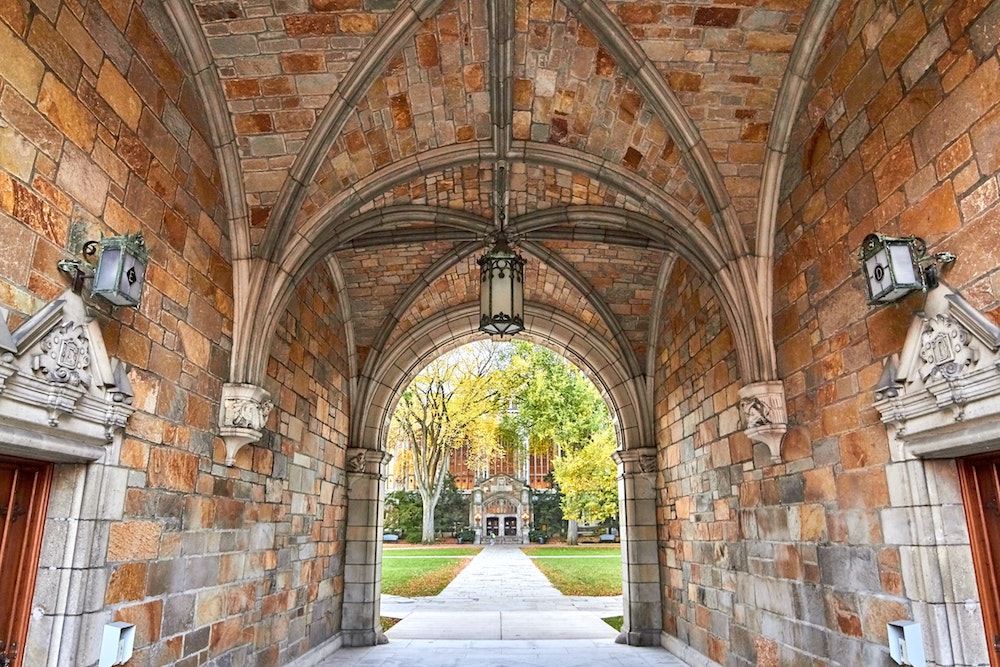In Ann Arbor, Michigan it is no secret that secular humanism is king.
In this kingdom, the banner that is flown is: “no one can know absolute truth.” The anthem that is played is: “enlightened, 21st century people have no need of God.” And finally, the food that is consumed is: “elect the right candidate and we can progress as a society.”
In the midst of a global pandemic, it is no surprise that the fragility of this kingdom shakes and often crumbles. People look for hope in the face of ensuing nihilism, and perhaps, a surer and more Sovereign King to pay homage to.
Just yesterday, my neighbor confessed to me that “sometimes, I wish I had religion” to better understand her role in the world.
Last week, a father at the park with his daughter asked me the age-old question: “if the God of the Bible is good, then why is there evil and suffering?”
Two weeks ago, a student of mine admitted that “Christianity made logical sense of the world, but I ultimately don’t wanna bend the knee to King Jesus…it scares me.”
The stories are myriad. In the chaos and turmoil of COVID-19, racial unrest, and an upcoming divisive election, our neighbors and students are yearning for something, SOMEONE, to be a rest for their souls and a balm for their heartache.
That is why, as students prepare to return to campus, I am extremely excited to see, and enter into, all that God has tilled up in students’ hearts during the past 5 months. We know that “the harvest is plentiful” (Matthew 9:37), so even with the restrictions placed upon us as a registered student organization, I am confident of the incredibly fruitful ministry season that we’re about to enter into.
But why such optimism? Is this some blind hope for God to do something? You know, just one of those Christian niceties we say to make ourselves feel better?
As you might imagine, Christian niceties don’t fly in Ann Arbor. They’re silly, full of fluff, and devoid of power.
No, instead, as Christians, we gather optimism for the ensuing semester from the Apostle Paul in his letter to the church at Philippi.
He writes, “I want you to know, brothers, that what has happened to me has really served to advance the gospel” (Philippians 1:12).
Paul stumbled across an apparent impossibility in his ministry. His dilemma: how would the Gospel go forth if he was stuck in prison? In a lot of ways, this is no different than the predicament the Church finds herself in today. Our dilemma: how will the Gospel go forth with restrictions that inhibit our ability to meet in person?
Perhaps the most mind-blowing aspect to Paul’s statement is that he wrote this letter before Zoom! Before Instagram and Facebook! If he was unable to be physically present to share the Gospel, and didn’t have the means we have today, how on earth would he do “virtual” ministry?
Here’s what Paul knew that we forget more times than not: The Providence of God is purposeful, powerful, and good.
To put it in the words of the Westminster Shorter Catechism,
“God’s works of providence are, his most holy, wise, and powerful preserving and governing all his creatures and all their actions.”
For Paul, that meant his imprisonment would serve to advance the Gospel in ways unforeseen and unimagined.
He continues, “so that it has become known throughout the whole imperial guard and to all the rest that my imprisonment is for Christ” (Philippians 1:13).
Paul delighted in the works of providence because he knew it had the power to advance the Gospel despite his present circumstances. For him it became a question of not if, but rather, how will God use his present circumstances to bring His Kingdom on earth as it is in heaven?
For us, the question should bode excitement. It should bode curiosity. It should bode CONFIDENCE of God’s work on campus this semester.
“How will He use the COVID-19 pandemic and ensuing restrictions to bring many sons and daughters to glory?”
“How will He grow his people to more faithfully love and serve Him?”
“How will racial and political tensions around the country begin to peel back the reality that the systems of this world do not have the answers that our souls desperately long for?”
Trusting in the Providence of God allows us to “become confident in the Lord” and makes us “much more bold to speak the word without fear” (Philippians 1:14).
Of course, trusting that God could, in His Providence, turn a global pandemic into something that advances His Kingdom isn’t such a novel idea after all.
After all, it was this same God who, “for our sake…made him to be sin who knew no sin, so that in him we might become the righteousness of God” (2 Cor 5:21).
Believe the paradox once again this semester.
